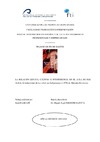Identificador persistente para citar o vincular este elemento:
https://accedacris.ulpgc.es/jspui/handle/10553/73777
| Campo DC | Valor | idioma |
|---|---|---|
| dc.contributor.advisor | Perdomo Batista, Miguel Angel | es |
| dc.contributor.author | Diakhate, Soda | es |
| dc.date.accessioned | 2020-07-23T11:39:16Z | - |
| dc.date.available | 2020-07-23T11:39:16Z | - |
| dc.date.issued | 2020 | - |
| dc.identifier.uri | https://accedacris.ulpgc.es/handle/10553/73777 | - |
| dc.description.abstract | Los países africanos presentan, además de una diversidad étnica y cultural, una pluriversidad lingüística que se caracteriza por una multitud de lenguas vernáculas, además de las lenguas no africanas que por razones históricas se incorporaron al ámbito lingüístico continental. Esta característica se ha trasladado a la literatura, y se manifiesta de tres maneras: en la literatura en lengua oral, en la literatura africana escrita en lenguas africanas y en la literatura africana escrita en lenguas no africanas. En el contexto francófono, que es el que nos interesa en este trabajo, la literatura africana en lengua francesa presenta una característica artísticamente innovadora: una forma de hibridación lingüística. En este sentido, el escritor marfileño Ahmadou Kourouma es el máximo representante de esta técnica narrativa con la malinkización de la lengua francesa. Esto es: la transposición de expresiones o palabras malinkés al francés en su obra Les soleils des Indépendances (1970). El objetivo de este trabajo es estudiar los problemas ligados a la traducción de este tipo de texto híbrido y constatar los tipos de errores que surgen a la hora de prestarse a ese ejercicio intelectual en el aula de ELE. Para ello, se hará un estudio de caso basado en la traducción de alumnos senegaleses de grado en Lengua Española y Civilizaciones hispánicas de la Universidad Gaston Berger de Saint-Louis de un fragmento de la obra citada. Tras el estudio de caso, procederemos a un estudio y análisis de los errores y propondremos estrategias para resolverlos. | en_US |
| dc.description.abstract | In addition to their ethnic and cultural diversity, African countries have a linguistic diversity characterized by a multitude of vernacular languages, in addition to the non- African languages which, for historical reasons, were incorporated into the continental three ways: in oral literature, in African literature written in African languages and in African literature written in non-African languages. In the French-speaking context, which is that one on which focus as part of the piece of work, African literature in the French language presents an artistically innovative characteristic: a form of linguistic hybridization. In this sense, the Ivorian writer Ahmadou Kourouma is the famous representative. That is: the transposition of Malinkés expressions or words into French in his work Les soleils des Indépendances (1970). The aim of this paper is to study the problems associated with the translation of this type of hybrid text and to note the types of errors that arise when students lending themselves to this intellectual exercise in the ELE classroom. For this purpose, we will do a case study based on the translation of Senegalese undergraduate students into Spanish Language and Hispanic Civilizations from Gaston Berger University of Saint-Louis of the fragment of the aforementioned work. After this case study we will carry out a study and analysis of errors and propose strategies to solve them. | en_US |
| dc.language | spa | en_US |
| dc.subject | 5701 Lingüística aplicada | en_US |
| dc.subject.other | Narrativa negroafricana francófona | es |
| dc.subject.other | Hibridación linguística | es |
| dc.subject.other | Malinkización | es |
| dc.subject.other | ELE | es |
| dc.subject.other | French-speaking | es |
| dc.subject.other | Linguistic hybridization | es |
| dc.subject.other | Black African narrative | es |
| dc.subject.other | Malinkisation | es |
| dc.title | La relación lengua, cultura e interferencia en el aula de ELE: Análisis de traducciones de Les soleils des Indépendances (1970) de Ahmadou Kourouma | es |
| dc.type | info:eu-repo/semantics/masterThesis | en_US |
| dc.type | MasterThesis | en_US |
| dc.contributor.departamento | Departamento de Filología Hispánica Clásica Y De Estudios Árabes Y Orientales | es |
| dc.contributor.facultad | Facultad de Traducción e Interpretación | en_US |
| dc.investigacion | Artes y Humanidades | en_US |
| dc.type2 | Trabajo final de máster | en_US |
| dc.description.notas | Master Universitario en Español y su Cultura: desarrollos profesionales y materiales | en_US |
| dc.identifier.matricula | TFT-59929 | es |
| dc.identifier.ulpgc | Sí | es |
| dc.contributor.titulacion | Máster Universitario en Español y su Cultura: Desarrollos Profesionales y Empresariales | es |
| item.fulltext | Con texto completo | - |
| item.grantfulltext | open | - |
| crisitem.advisor.dept | GIR Investigaciones literarias y lingüísticas en español | - |
| crisitem.advisor.dept | Departamento de Filología Hispánica, Clásica y de Estudios Árabes y Orientales | - |
| Colección: | Trabajo final de máster | |
Visitas 5
127
actualizado el 11-ene-2026
Descargas
309
actualizado el 11-ene-2026
Google ScholarTM
Verifica
Comparte
Exporta metadatos
Los elementos en ULPGC accedaCRIS están protegidos por derechos de autor con todos los derechos reservados, a menos que se indique lo contrario.
